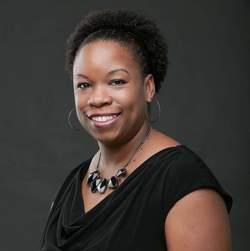 @DrKBDaugherty
@DrKBDaugherty Preventing summer learning loss is as simple as keeping students engaged with books and numbers. Encouraging 20-30 minutes of reading a day will continue to build children's vocabulary and comprehension skills. Additionally, writing a daily reading response journal can help parents monitor whether their child truly understands what they are reading. Engage in conversation with your child about what they are reading or even better, read with them! Make reading fun! Consider a family book club! Take a trip to the library together and just read and write for a short time. I think it's so important to model for our children that reading can be and should be enjoyable!
Additionally, when opportunities present themselves, practice playing with numbers through games, such as Multiplication War or racing fluency practices. Through this type of play, you will be able to expose common mistakes in math processes and can quickly correct them before they become a habit. When out shopping, have your child make small purchases and mentally determine how much change the cashier should give back to them. In most cases, I've found cashiers to be patient and participatory in the opportunity to help in the moment. This type of mental math practice helps strengthen basic number sense and build an understanding of number relationships.
Finally, expose children to different experiences when possible. This doesn't have to cost much at all. Be creative and just make the learning fun and meaningful! They will have a better appreciation for it in the end.
Dr. Kelly Bullock Daugherty is a teacher of mathematics, Teacher Leader & Mentor, Education Advocate, National Trainer & Professional Development Leader, & Consultant working in the field of education for 18 years. She is the Founder/CEO of Transitions Educational Consulting, LLC, working to help teachers rethink, redefine, and modify their practices, through specialized professional development, in order to impact student achievement. Her specific areas of expertise focus on teacher leadership & efficacy, student engagement, and student motivation.
Additionally, when opportunities present themselves, practice playing with numbers through games, such as Multiplication War or racing fluency practices. Through this type of play, you will be able to expose common mistakes in math processes and can quickly correct them before they become a habit. When out shopping, have your child make small purchases and mentally determine how much change the cashier should give back to them. In most cases, I've found cashiers to be patient and participatory in the opportunity to help in the moment. This type of mental math practice helps strengthen basic number sense and build an understanding of number relationships.
Finally, expose children to different experiences when possible. This doesn't have to cost much at all. Be creative and just make the learning fun and meaningful! They will have a better appreciation for it in the end.
Dr. Kelly Bullock Daugherty is a teacher of mathematics, Teacher Leader & Mentor, Education Advocate, National Trainer & Professional Development Leader, & Consultant working in the field of education for 18 years. She is the Founder/CEO of Transitions Educational Consulting, LLC, working to help teachers rethink, redefine, and modify their practices, through specialized professional development, in order to impact student achievement. Her specific areas of expertise focus on teacher leadership & efficacy, student engagement, and student motivation.